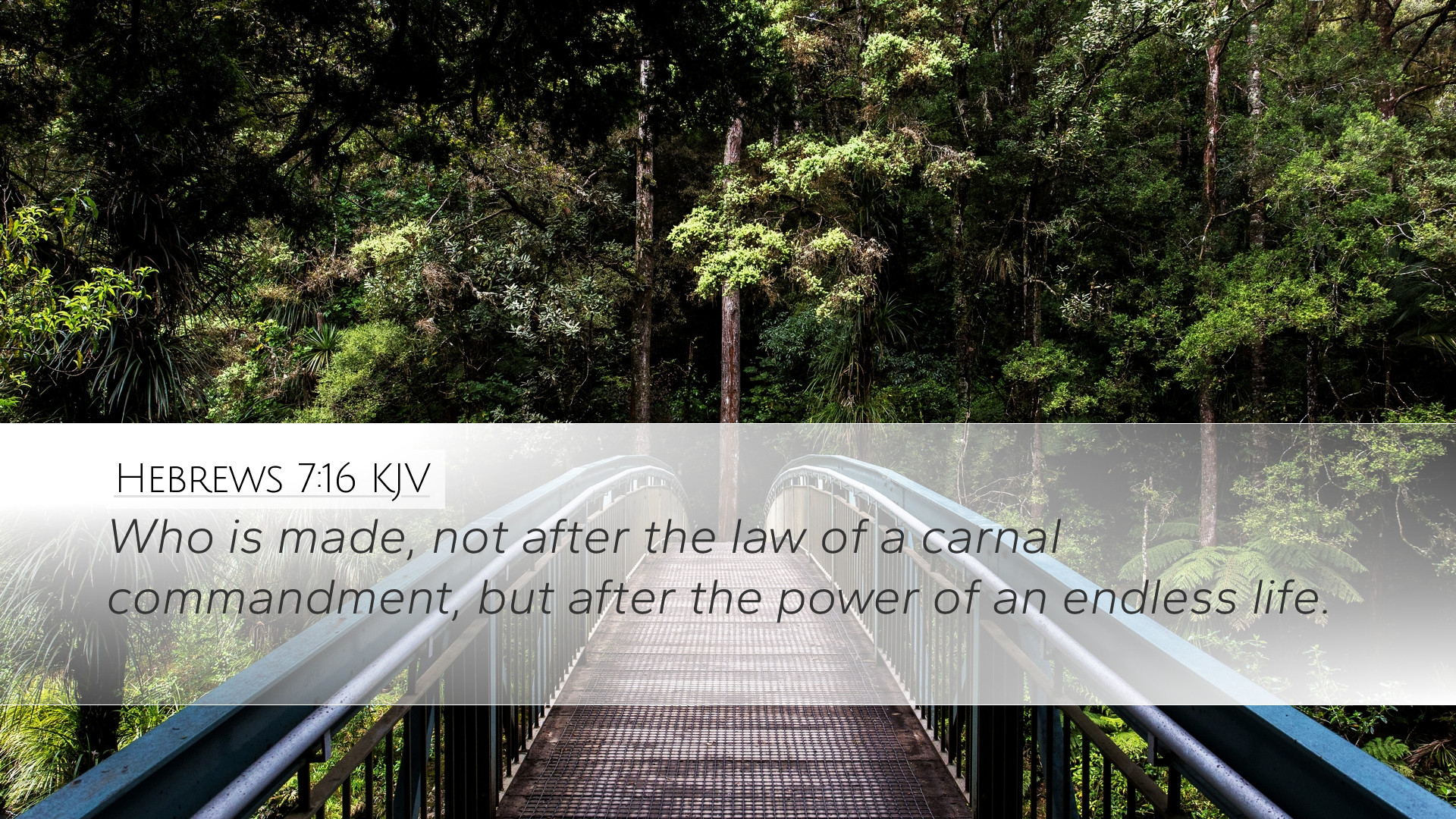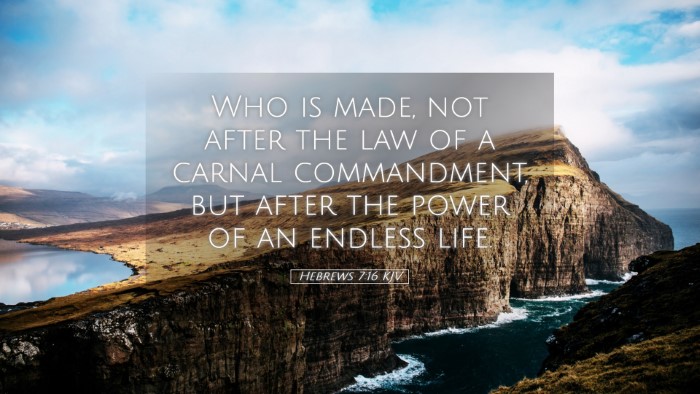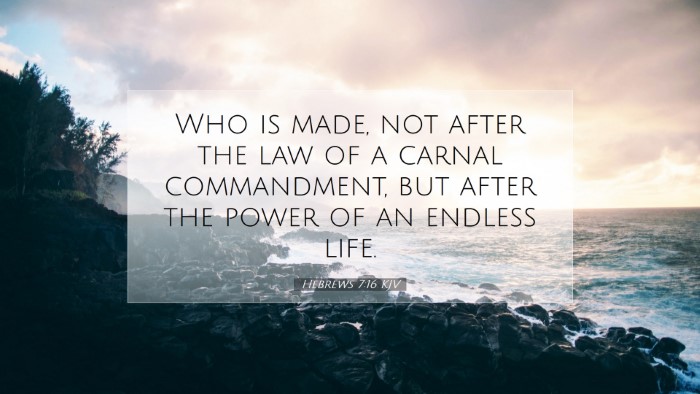Commentary on Hebrews 7:16
This verse reads: "Who is made, not after the law of a carnal commandment, but after the power of an endless life." This passage is a critical point in the book of Hebrews, where the author contrasts the priesthood of Jesus Christ with the Levitical priesthood under the Mosaic Law.
Overview of the Context
The epistle to the Hebrews emphasizes the superiority of Christ's priesthood. In Chapter 7, the author examines the person of Melchizedek and how Christ's priesthood aligns with and surpasses Melchizedek's. This comprehensive comparison is made evident as the author outlines the nature of Christ's priesthood, highlighting that it differs fundamentally from the priesthood established by the law.
The Nature of Christ's Priesthood
Hebrews 7:16 draws a distinct line between different types of priesthood. The phrase "not after the law of a carnal commandment" signifies that the Levitical priests were appointed based on physical birth and the adherence to the law, which was fleshy and temporary. On the contrary, the priesthood of Christ is established through "the power of an endless life." This powerful distinction forms the backbone of the new covenant, emphasizing spiritual realities over earthly ordinances.
1. The Law vs. The Promise
Albert Barnes elaborates on the concept of the law being "carnal", indicating it is concerned with the physical and temporal aspects of religion. The Levitical priesthood was bound by ritual, genealogical lineage, and the obligations of the law. In contrast, the priesthood of Christ is predicated on the promise of God and His unending life. Barnes suggests that this celestial ordination provides a more profound and lasting ministry, capable of addressing spiritual needs rather than mere compliance with the law.
2. The Endless Life of Christ
Matthew Henry emphasizes the significance of "an endless life." He notes that Christ's priesthood is eternal because of His indestructible life—a life that transcends death and human limitations. Henry asserts that Jesus’ resurrection affirms His priesthood, assuring believers of the efficacy of His sacrifices which liberate them from sin's penalties. This unending life signifies not just duration but the vibrant, all-sufficient power available to believers for sustenance and advocacy before God.
Theological Implications
The implications of this verse are profound for Christian theology and ecclesiology. Christ's priesthood is not just an office but a divine reality that affects all believers. Adam Clarke stresses that this priesthood provides believers with direct access to God, shifting the focus from the institutions of religious order to a personal relationship with Christ. This development highlights the priest’s role not just as mediators of the law but as conduits of grace and mercy through an everlasting covenant.
1. A New Covenant
Hebrews 7:16 marks a pivotal shift in understanding the nature of God's dealings with humanity. The old covenant was based on laws carved in stone, signifying a rigid and often unyielding relationship with God, articulated through commandment and compliance. In contrast, the new covenant, as represented by Christ's eternal priesthood, emphasizes grace, mercy, and an internal transformation wherein the laws are written on the hearts of believers.
2. Assurance of Salvation
Clarke also points to the assurance that believers gain from recognizing Christ’s endless life. His life is the guarantee of their salvation—while earthly priesthoods could only accomplish temporary covers for sin, Christ’s life offers a permanent forgiveness and continual intercession. This assurance emboldens the believer to approach the throne of grace with confidence, knowing that their High Priest is both mighty and compassionate.
Practical Applications for Ministry
As ministers and theologians engage with this passage, multiple practical applications arise:
- Acknowledging the Superiority of Christ: Encourage congregants to grasp the significance of Jesus’s ongoing ministry and priesthood, which exceeds the limitations of the law.
- Preaching Assurance and Access: Aim to preach the eternal access believers have through Christ. This understanding can strengthen faith and provide deeper comfort during trials.
- Living in the New Covenant: Promote the transformative power of the new covenant, challenging believers to live in accordance with the grace provided through Christ rather than the confines of legalism.
Conclusion
Hebrews 7:16 intricately weaves a complex tapestry of theology, demonstrating the depth of Christ's priesthood in comparison to the Levitical order. The insights provided by public domain commentaries illuminate the implications of this verse for personal faith, corporate worship, and the very essence of Christian identity. Christ, as our High Priest, offers not just a role in a religious system, but a reality that transforms lives through His endless life. It calls on all believers to engage with God in the fullness of His grace and the assurance of His promises.


